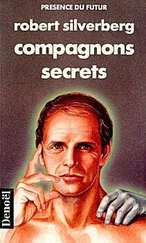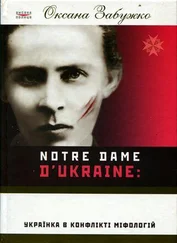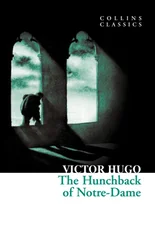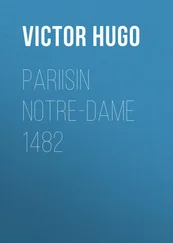For as long as Eugène-Olivier could remember, the square around the Arc de Triomphe had been a pedestrian zone for public celebrations. But now they had begun to build something. A dozen metal containers similar to those used for garbage had been placed around the Arc at equal distances. The container on the right was filled with stones, and to the left of the container there was a small truck with a trailer.
A car moved slowly across the pedestrian square, a green police car with a trailer for the transportation of prisoners. Eugène-Olivier became cautious—but then checked himself and relaxed. The invisible statistician who lived inside him reminded him that he should not concern himself today with anything out of the ordinary. No matter what happened, he should only think about his orders. He wasn’t even curious; he was just pretending to pass the time.
Eugène-Olivier turned his attention to the barred back door of the car that was moving through the crowd at a snail’s pace. Behind the door there was a man. The green pick-up slowed down. Why had they brought this poor wretch here? There was no prison or courthouse.
Only now did he notice the fresh posters glued to the walls of the Arc and the round pillars. O, how he hated to read their worm-like letters! But he didn’t have to, because an Arab sitting on a bench had just unrolled a poster and prepared to read it out loud to the crowd of gathered children and women. Maybe I should pretend I can’t read, either, thought Eugène-Olivier, pushing his way through the crowd.
“He undermined the obligations he undertook upon accepting work,” read the grinning Arab.
“What exactly does that mean, Mr. Hussein?” asked a tall woman in a blue chador.
“The giaour promised, Aunt Mariam, that all the grapes grown on his land would be delivered to the fruit drying plant,” explained the Arab patronizingly. “And he also gave false information. He blamed spillage and frost when, in fact, he was hiding grapes. And you can imagine what he was doing with them.”
“Don’t tell me was making wine? Oh, the beast!” The woman clapped her hands.
“Dog!”
“Infidel dog!”
“We’ll show him wine! Dog!” shouted the children.
The police brought the prisoner out of the car. He turned out to be an older man, but still feisty, full of strength—judging by his walk and his still-fresh, tanned face. He was thin and wiry, with iron muscles that rippled under his flannel shirt. His baggy denim overalls were so faded that they looked almost white, and his gray cap was so burnt by the sun that it was difficult to discern the advertisement of some sports competition banned long ago. He was a farmer, it was obvious at first glance, even if one did not know that he was a winemaker. But where were they taking him? To some stupid concrete pillar right under the Arc that hadn’t been there for long.
“Kiamran, hey, Kiamran, it’s about to start!” A young man in a colorful shirt, obviously drugged, went up to the metal container and began to take several stones the size of apples in his hands. Maybe he thought they really were apples. His eyes were completely white.
Holding the stones with his left hand to his chest, he continued to take more with his right. He bent over awkwardly and a stone fell on his foot. Instead of screaming in pain, he stopped and smiled to himself, as if he had heard a joke.
“Leave them, you have enough already!” the woman in the blue chador told the young man. She raised the folds of her chador like an apron and began to gather stones in it.
Behind her two other youths were already hurrying to fill their pockets; a younger, chubby one who held his cigarette in his teeth to free his hands, and a very little girl whose face was uncovered.
Was it possible that they were all drugged?
Eugène-Olivier had considered himself a soldier since the age of eleven and strictly speaking, that is what he was. For that very reason he wasn’t afraid to honestly admit what another person might have tried to describe less specifically: he was afraid.
The answer was like a ball that refused to go into the basket. It was so obvious, so simple, that he saw it but didn’t want to understand it. Calm down, weakling. You have to get a grip on yourself…
Zeynab hesitated. She wanted to take some stones, too—she could wipe her hands later with the wet, scented napkin she always carried with her—but what would happen to her manicure? She hated to ruin it; she had put on this nice polish only yesterday! Really, they could offer people of position the opportunity to buy something more practical. Or at the very least wrap the stones in clean plastic wrap. Her husband was right; they whined for social assistance and complained there were no jobs, but when they needed to make a little effort to earn some money, all they could think about was entertainment.
But the poor woman (who really had no business being in that fancy neighborhood in the first place) had armed herself so well with stones that Zeynab couldn’t resist. Oh, so what if the manicure was ruined? She could touch it up in the ladies’ room of the department store, and the manicurist would come again tomorrow anyway.
The policemen were already taking out special handcuffs to rivet the old man to the post. Eugène-Olivier understood everything now, of course, before he forced himself to go back to listening in on the crowd. Completely calm (he had already seen quite a bit in his eighteen years), he was standing thirty feet from the condemned man when something extraordinary happened.
Freeing his hand from behind his back, the farmer suddenly raised his chin and seemed to nod his head with dignity, bringing his cuffed hand to his forehead, which he touched lightly with his fingers before gently bringing his hand down to his stomach, and from there to his left shoulder and then to his right.
The old man crossed himself!
It was like a signal. The policemen barely managed to rivet the farmer to the post before fleeing.
“Bismilla-ah!”
Several stones missed, and then one hit the farmer in the face and started a trail of blood. It was impossible to make anything out after that. People were shouting, whistling, laughing, as the stones flew and fell like hail on the asphalt.
“Inshall-a-ah!”
“Death to the kafir!”
“Death to the dog!”
“Death to the winemaker!”
“Subhanalla-a-ah!”
Eugène-Olivier suddenly noticed a little boy in a fluffy little white outfit, not older than three, with light chestnut curls, who moved confidently on chubby legs—in his hands was a stone.
“And what are you saving your hands for?” A young man in a black shirt, apparently less drunk than the others, approached Eugène-Olivier. Probably one of the volunteers of the religious guard. He needed to get away.
The revelry of the crowd did not last longer than fifteen minutes, and died out quickly. The bloodied body hung helplessly on its chains, the stones knee-deep. He had probably died before the stones stopped flying.
Zeynab wiped her hands with a jasmine-scented towelette. She had broken a nail after all, but the manicurist would be able to glue on a piece of plastic that would be invisible under the polish.
Eugène-Olivier slipped silently out of the crowd. Another image of their lives, just another among dozens like it. Another death, just one of thousands of deaths. What was so unusual about that?
As long as the vineyards of France were alive, there would be winemakers, and there would be a black market. And they couldn’t cut them down because they loved raisins; it seemed they couldn’t make any dish that didn’t contain them. And as long as there was a black market, they would hunt down wine sellers and winemakers, and publicly torture them to death, according to the sharia . Nevertheless, there was something that fascinated him, something very important. Wasn’t that the magnificent sign of the Cross, the wide swing, the five fingers transformed into the symbol of the five wounds of Christ? Were there still believers? But twenty years had passed since the last Mass was celebrated!
Читать дальше
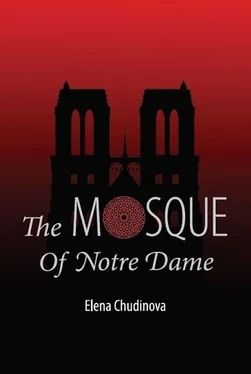

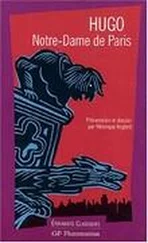
![Виктор Гюго - Собор Парижской Богоматери [Notre-Dame de Paris]](/books/30985/viktor-gyugo-sobor-parizhskoj-bogomateri-notre-thumb.webp)
